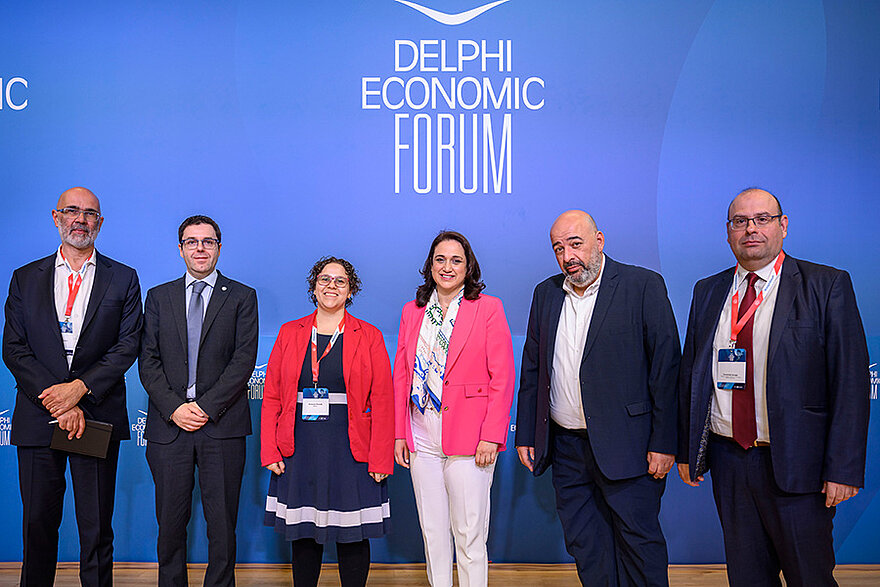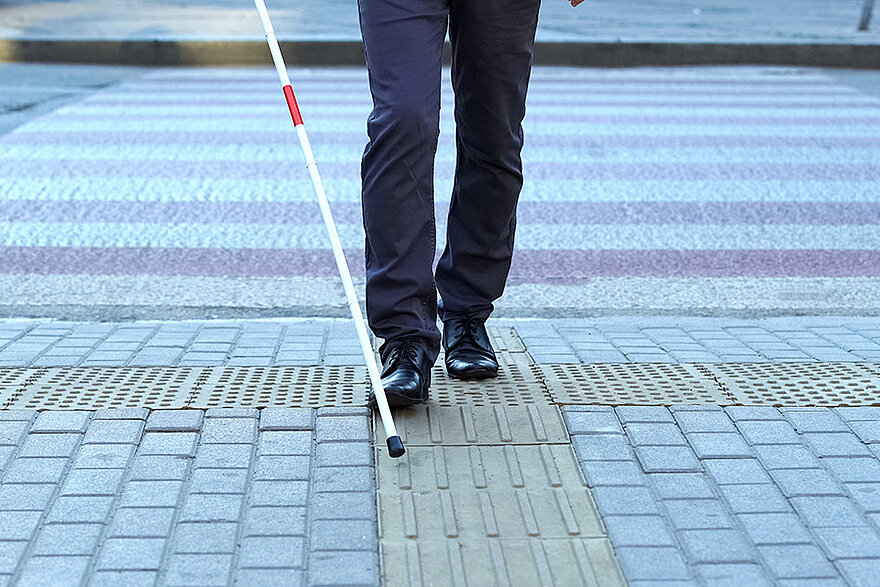Delta, the app for early detection and diagnosis of cognitive decline (e.g. dementia) launched by the startup ki elements UG, is the result of the EIT Digital innovation activity ELEMENT in 2017.
DFKI, as activity lead, provided results in 2017 which led to the creation of ki elements UG, and the prototype app Delta, which reduces cognitive status screening time by more than 50%and improves the diagnosis and decision process.
The activity is being renewed by EIT Digital in 2018, in order to accelerate the commercialisation of the app and obtain a CE certification.
EIT Digital's ELEMENT Digital Wellbeing innovation activity and its startup partner ki elements together plan to launch an app for early diagnosis of cognitive decline. The prototype has already been developed, and it will be brought to market in the second half of 2018.
Jan Alexandersson, CEO of the startup ki elements UG and lead for the ELEMENT activity, explains: "We are very excited to continue our work in 2018 with the support of EIT Digital and our various partners. We are planning the year in three stages. In the first half of the year, we will essentially focus on technological maturation, experimentation and, above all, CE certification. We will also attend a full programme of conferences throughout the year, such as the Chicago AAIC in July 2018, to raise awareness of the product. In the second half of 2018, we will focus on marketing and commercialisation."
How the Delta app works:
- Delta records and saves speech data and synchronises it with your HIS (Hospital Information System). This allows you to easily re-listen to patients and empowers your professional decisions.
- Delta automatically transcribes answers from cognitive speech tests to keep your attention free for the most important thing: your work with the patient.
- Delta leverages AI and computational linguistics to extract and analyse powerful scientific metrics from patients' answers.
- Delta gives you comprehensive insight by visualising the extracted metrics. Combined with population cut-off values, this visualisation helps to enrich your professional perspective.
- Delta compiles your test analysis, visualisations and your interpretation/diagnosis into a digital report formatted to your clinic's guidelines.
Alexandersson continues: "Delta is an iPad app designed and developed with and for neuropsychologists and independent practitioners. It will also be helpful for professionals involved in studies where cognition is affected, such as medical trials. Delta not only reduces cognitive status screening time by more than 50%, but also improves diagnosis and decision process and quality. We are now working on the CE certification of our product and we are looking to expand our potential customer base to other language markets such as German by the end of 2018. As a start, our focus is on the French market."
ki elements' mission is to provide health professionals with artificial intelligence (AI)-empowered tools as key elements to help them excel in their profession. For clinicians investigating dementia-like diseases, Delta is the perfect tool for executing and managing speech-based cognitive tests.
Dementia is a cognitive disorder, mainly caused by neurodegenerative diseases such as Alzheimer's disease and strokes. It leads to a loss of autonomy and is associated with significant decrease in quality of life. In 2015, there were 9.9 million new cases of dementia around the world; one every 3 seconds*. However only one in two people suffering from dementia is diagnosed. The number of sufferers is expected to double every 20 years, reaching 68% of the worldwide population by 2050, mostly in low-medium income countries and due, in part, to fewer births and a growing elderly population.
Partners involved in the innovation activity for 2018 are:
- DFKI GmbH: coordination, technology maturation and business modelling
- ki elements UG (Hauftungsbeschränkt) (sub-grantee of DFKI GmbH): commercialisation of project results
- University Clinic of Saarland (Germany): clinical partner. Validation study and data collection. Clinical personnel will be involved.
- INRIA, Nice: video analysis
- Innovation Alzheimer (sub-grantee of INRIA): clinical partner. Validation study and data collection. Clinical personnel will be involved.
External partners:
- University Clinic Bern (Switzerland)
- SHG Clinic Sonnenberg (Germany)
- University Clinic Dresden (Germany)
- University Clinic/DZNE Rostock (Germany). Clinical personnel will be involved.
*Source: Alzheimer's Disease International
The Digital Wellbeing Action Line leverages digital technologies to help people stay healthy (prevention and early detection) or cope with an existing chronic condition. It includes both physical and mental wellbeing. The solutions generally rely on enabling consumers to be well-informed about their wellbeing, change their behaviour and use digital unobtrusive instrumentation to monitor and improve their quality of life, saving high healthcare costs later in life.







